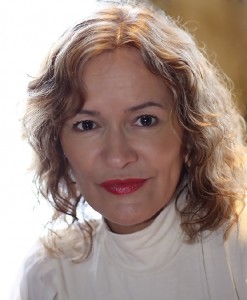 Toronto storyteller Heather Whaley can’t wait to board a plane tomorrow for Buenos Aires, Argentina, where, by invitation from Fundación El Libro, she’ll enjoy the honour of performing at the 16th International Storytelling Festival.
Toronto storyteller Heather Whaley can’t wait to board a plane tomorrow for Buenos Aires, Argentina, where, by invitation from Fundación El Libro, she’ll enjoy the honour of performing at the 16th International Storytelling Festival.
“I’m over the moon,” says Heather, “and my mind is reeling with the stories, music and workshop material I will present.”
Heather is this year’s talented recipient of the Alice Kane Award and the Anne Smythe Travel Award, presented to her by Storytelling Toronto at the recent Toronto Storytelling Festival. Both awards are named in memory of renowned storytellers and given for innovative projects and professional development, and to support travel.
The International Storytelling Festival will take place on April 29, 30 and May 1, during the 37th Buenos Aires International Book Fair. Heather will remain in Argentina a few days longer to travel to Mercedes, where she’ll lead an additional workshop for ESL teachers.
Though Heather was a professional storyteller long before taking part in my U of T SCS course “Memories into Story,” she writes:
“Your course has actually helped me feel greater emotion and delve deeper while telling my own personal stories or someone else’s. I feel I have been given permission to tell the truth and tell it well. It also helped me to realize how very important timelines are to some people who are listening. I have always worked at substantiating what I might quote (something I learned in a community journalism course I took years ago) or any dates I research, but I find myself going even further now and asking more questions of those who are close to the topic.
For example, while in South Carolina for the whole month of February, I found an incredible book of compiled Slave Ghost Stories that were collected during the Great Depression. Normally, I would choose a good creepy story and tell it well enough, but with being so close to the remnants of the Civil War and slavery I found myself going way beyond the creepy story. It was important that I could imagine what these people telling the stories looked like, how they felt and why they chose to reveal tales of spirits and of strange family rituals; why did they want to hang on to these stories? The field workers hired by the government were instructed to interview the slaves, and what they found was that each talked of ghosts and spirits, even though most were Christians. They were told tales of ghosts, hags and hants.
It so happened that I also attended an elder author’s book launch in Charleston that was about his slave ancestors (February is Black History month) and as he talked about his great grandfather’s characteristics and everything positive about his progress as a freed man, I watched his chest swell. There was so much pride about his family’s survival and hard work. I heard a Gullah storyteller at Hilton Head library incorporate his grandmother’s hilarious (but weird) family traditions and rituals into a story, and when I met with a historian tour-guide storyteller through a puppeteer I connected with, she took me to the Pickpocket Plantation in Beaufort. The row of small homes on the plantation (shingled war houses) at the back field behind the grand southern house were rented out to the staff who looked after the animals and land. They all happened to be black families; the men with strong bodies, happy and fulfilled.
So, the creepy story I chose to share with audiences over the past month caused quite a stir in me. After I’d visited a plantation with my own eyes and as I told the story in the voice of seventy-year-old Mausley Stoney, a woman who lived on a seaside plantation as a child during the Civil War and witnessed a ghostly happening, she seemed to appear in the audience, nodding to me with approval.
I am now working on original memoir performance pieces about breast cancer and family abuse issues with another artist—something I would never have attempted before taking your course. I feel safer now that I have learned to shape a story to tell without feeling that I have to share every gory detail, yet knowing that I have to share enough. Memoir writing allows us to be honest with ourselves, and has freed me to go deeper without being afraid.”
Among Heather’s challenges in preparing for the upcoming international storytelling festival is that she’s to be the sole English-only-speaking Canadian. The audience will be made up primarily of Spanish-speaking participants. In developing her two workshops, two performance sets and her contribution to a roundtable discussion on world storytelling, she worked via e-mail and Skype with translator and storyteller colleague Silvia De Cesare. All communication from the Fundación was sent to Heather in Spanish and then translated by Silvia, who will stay close to Heather during her travels.
This summer Heather and Silvia will perform together in Toronto. (Dates to be announced.)
Visit Heather’s website at www.heatherwhaley.ca. Click here to view Heather’s first YouTube posts of some of her (mostly children’s) performances over March Break 2011.